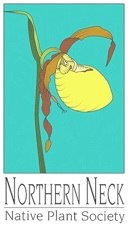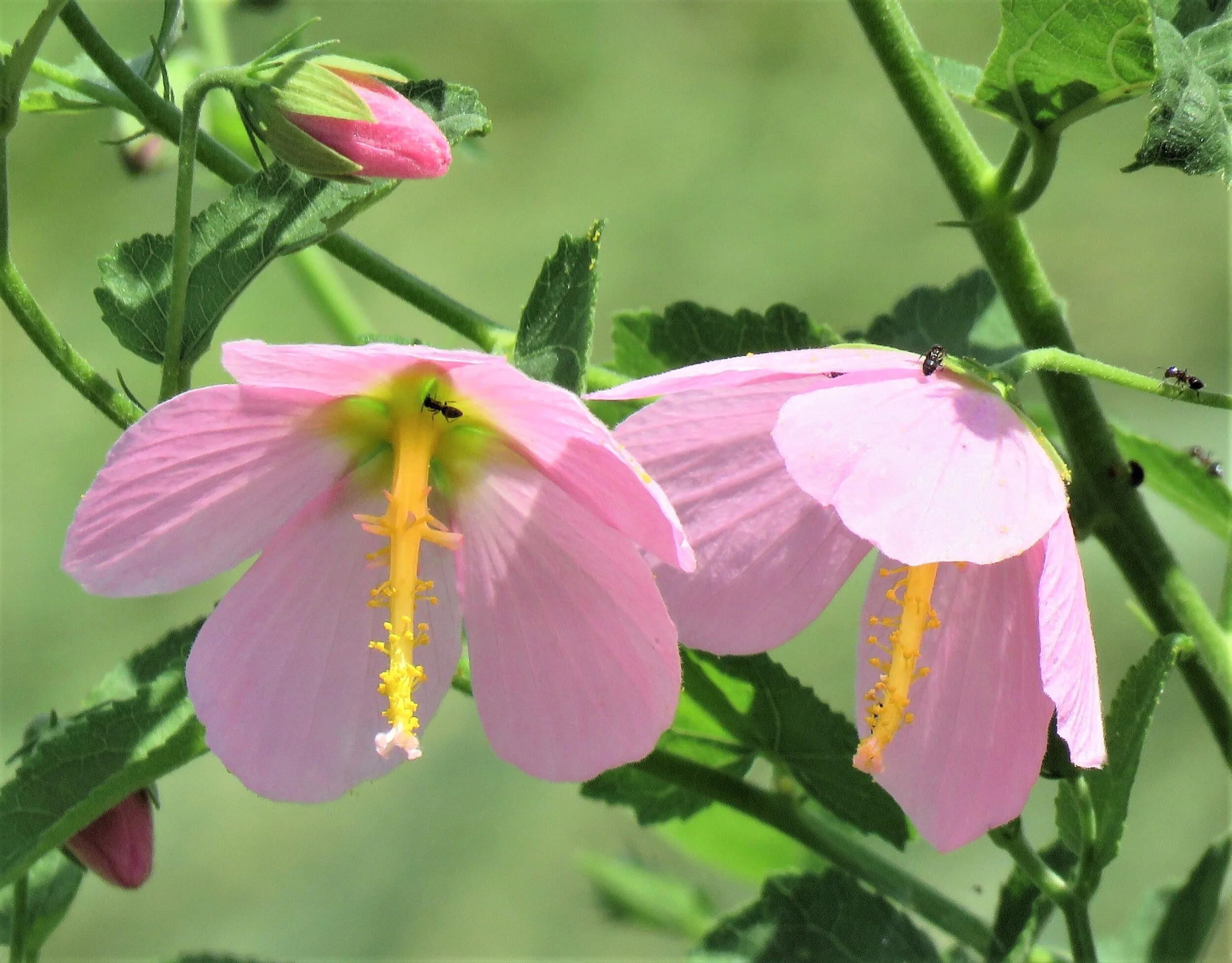Read all about American Wisteria (W. frutescens), our 2021 Wildflower of the Year on the VNPS Blog.
Read MoreThe “Plant Northern Neck Natives” campaign, of which Northern Neck Native Plant Society is a partner, is pleased to be collaborating with other campaigns across the state to offer a series of 12 webinars - 6 this spring and 6 this fall. The webinars will guide you through the why and how to turn your home garden into a beautiful retreat for your family and a native habitat for birds and other wildlife.
Read MoreAmerican Beeches are one of our most magnificent native trees, beautiful in every season, especially winter. They are also one of the most easily recognized of our eastern deciduous trees, with their silvery gray bark that appears “cast from molten pewter”. The massive trunks appear smooth to the eye but are slightly rough to touch and sometimes likened to elephant hide. American Beeches are slow growing but reach heights of 60 – 80’ and are known to grow as tall as 120’. This tree has massive smooth trunks with fluted bases that give way to a tracery of fine silvery branches accented with rich brown narrow pointed buds. Oval leaves alternate down the fine branches and are lined with small regular teeth along the margins and distinctive parallel veins on either side of the mid-rib. The lustrous leaves are almost translucent when held up to the sun, casting a dappled light under the trees. The leaves emerge a glowing chartreuse in spring, and light up the woodlands once again in fall when they turn a rich copper which glows against the silvery gray trunks. In winter, some of the leaves curl and fade to a light parchment color and hang on the branches, especially on younger trees and on lower branches of older trees, creating a lovely contrast with the gray trunks and surrounding forest.
Read MoreBetsy Washington highly recommends these two upcoming talks, for which some will have already seen earlier promotions, by a couple of our more accomplished native planters. Chris Ludwig is already known personally to some, and has previously given at least one in-person talk to the NNNPS. Please try to make time for one or both; if unavailable at those hours, we’ll try to get the url for their recordings and publicise them when released.
Read MoreAs the winter solstice approaches, I am already anticipating the blooms of our earliest spring wildflower, Skunk Cabbage, Symplocarpus foetidus. The buds of this winter blooming wildflower begin to appear in our region as early as December and the flowers often start to bloom by New Year’s Day. As one might imagine for a wildflower that manages to bloom and attract pollinators in the dead of winter, this plant has developed some remarkably interesting adaptations to the cold and even snow cover.
Read MoreAs the winter solstice approaches, I am already anticipating the blooms of our earliest spring wildflower, Skunk Cabbage, Symplocarpus foetidus. The buds of this winter blooming wildflower begin to appear in our region as early as December and the flowers often start to bloom by New Year’s Day. As one might imagine for a wildflower that manages to bloom and attract pollinators in the dead of winter, this plant has developed some remarkably interesting adaptations to the cold and even snow cover.
Read MoreEvery fall as the leaves begin to drop and little else dares to bloom, I look forward to the blooms of our Common Witch Hazel, Hamamelis virginiana, a lovely small deciduous understory tree that flaunts clusters of spidery yellow blooms along its bare branches.
Read MoreRed Chokeberry, Aronia arbutifolia, is a versatile landscape shrub that shines in all four seasons of the year.
Read MoreThe Viburnums are a wonderful group of native landscape shrubs with multiple seasons of interest. Arrow-wood, Viburnum dentatum, is a standout among them and is native to the Coastal Plain of Virginia including all of the Northern Neck, where it is found in moist floodplain forests, wet flatwoods, seepage swamps and even tidal and alluvial swamps. Despite its affinity for moist soils, it can also be found in dry upland woods.
Read MoreDUG IN FARMS
New Format and New Opportunities!
NNNPS has had to change the venue and format of our popular Annual Fall Native Plant Sale this year. We have worked out a wonderful agreement with Carolyn Quinn of Dug In Farms on Fleets Bay Rd, to sell our Native Plants and are offering many new features to making shopping convenient and safe.
This year’s Sale will be held EVERY DAY from Saturday, Sept. 19th, through Saturday Oct 10. Our beautiful Native Plants will be on sale every day during these four weeks so you can shop at your convenience and avoid the crowds. Volunteers will re-stock plants each week to be sure we have fresh supply of plants available during the entire sale.
Knowledgeable Volunteers will be on hand each Saturday morning from 9:00 – 12:00 (Sept. 19, Sept. 26, and Oct. 3 and 10th) to help you pick the perfect native plants for your gardens. We will have our free Guide to Northern Neck Native Plants, and other helpful brochures on Designing Bay Friendly Landscapes with NN natives, and on Deer Resistant and Salt Tolerant plants.
Read MoreSeashore Mallow goes by many fitting names - Virginia Saltmarsh Mallow, Coastal Mallow, or Virginia Fen-Rose – but no matter what name this lovely coastal plant goes by, it puts on a dazzling show in late summer and fall that will make you fall in love!
Read MoreDriving along sandy roadsides and fields of the coastal plain in summer, it is always a delight to find our native Purple Passionflower, a deciduous vine with dark green, three-lobed leaves and exquisite, showy flowers and edible fruit. This vigorous vine is native to the southeastern US from Kansas to Pennsylvania and southward and to Florida and Texas. In Virginia, it is most common in the southeastern coastal plain and outer Piedmont. Occurring in both Lancaster and Northumberland Counties, it is one of the hardiest Passionflower species.
Read MoreThere will be no traditional Native Plant Sale and no Market Days Make-up Sale at Wicomico Parish Church this year. The stars are not aligned this year—masks, gloves, sanitizers, social distancing—plus comparing notes with other like-minded local non-profits, made us come to this conclusion.
Read MoreServiceberries are one of our loveliest small native trees with multiple seasons of ornamental interest. In the Northern Neck, we have several species found in our area in a range of sizes to fit any garden. Amelanchier arborea, the Downy Serviceberry, is also called Juneberry, Shadblow and Shadbush among other names and is one of the most beautiful and common species.
Read MoreHERE’S A TED MUNNS RECOMMENDATION FOR A VIDEO WORTH WATCHING
Virginia Home Grown visits The Quarry Gardens at Schuyler for the 3rd show of its 20th season
Read MoreThe lovely Sweetbay Magnolia, Magnolia virginiana, goes by many common names, including Sweet Magnolia, Swamp Magnolia, Swamp Bay, Laurel, White Magnolia, and Beaver Tree to name just a few. Regardless of the name, it is a spectacular small tree in every season and we are lucky it is a common understory tree along coastal areas of the Northern Neck.
Read MoreFrom the age of 9, I grew up as Marion Louise Coble in Stanley, NC from 1955 through 1968. As a child I explored the woods about my home on North Peterson Street. An intersecting street was East Poplar where I found a woody plant with very large leaves. I even pressed some of the smaller leaves of this tree for my Girl Scout “Tree” merit badge. All of us children in the neighborhood called this plant “Elephant Ears.”
Read More




